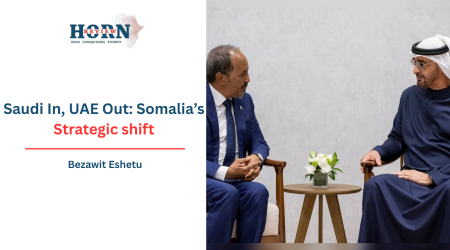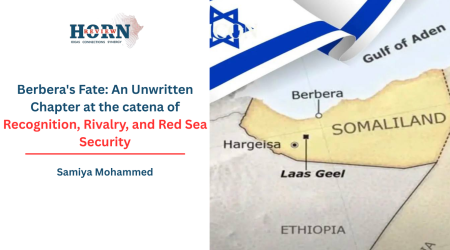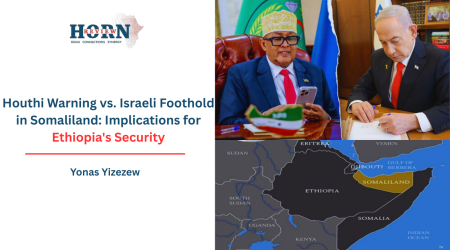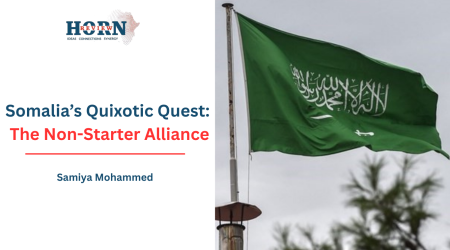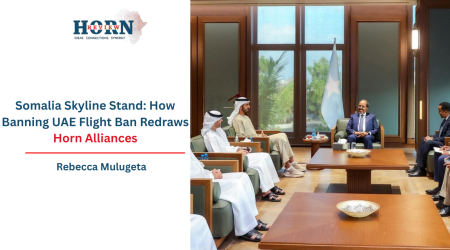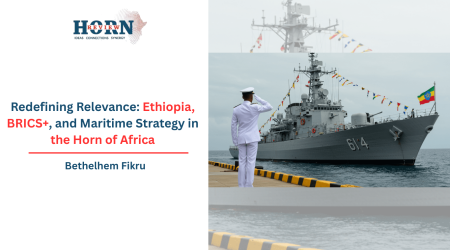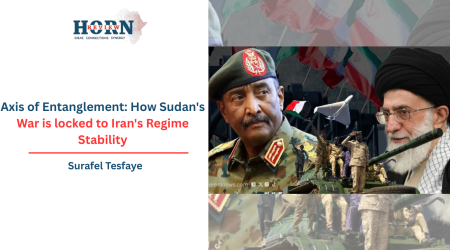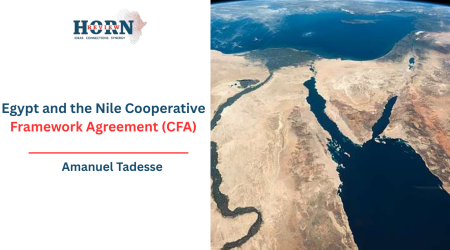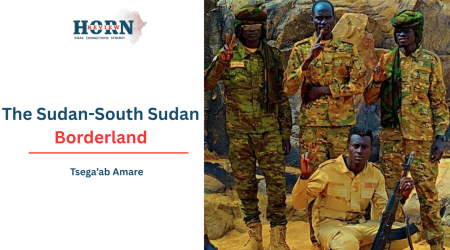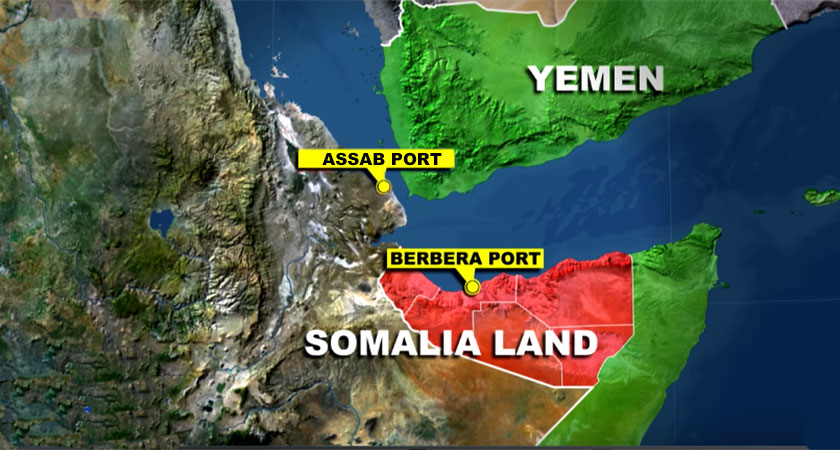
26
Jun
The Iron Lifeline & the Distant Sea: Steel Salvation or Sovereign Distraction?
The ink is barely dry on the $3 billion pact and the promise already goes like distant locomotive spark . The United Arab Emirates, wielding its book like a modern day vizier, has pledged to forge a steel artery from the sun baked shores of Berbera in Somaliland deep into the heart of Ethiopia. This isn’t a railway it’s a geopolitical lifeline cast across the Horn of Africa, promising to reshape trade, shatter Djibouti’s near monopoly, and crown Berbera as the Red Sea’s newest commercial prince.
The potential is a vision of containers flowing like water, economies surging, and Ethiopia breathing easier. But the celebratory engine starts , a deeper, more primal hunger remains unaddressed Ethiopia’s century old ache for the open sea.
Let’s be unequivocal this rail link is a masterstroke of necessity. Landlocked Ethiopia, Africa’s second-most populous nation and a burgeoning economic force, has been held hostage by geography and dependency. Over 95% of its trade currently funnels through Djibouti, a point translating into exorbitant fees, suffocating delays, and a constant vulnerability to regional political currents.
The Berbera corridor promises liberation. It offers diversification, resilience, and the tantalizing prospect of slashing logistics costs that bleed the national coffers dry. For Berbera and Somaliland, it’s nothing short of an economic supernova transforming a sleepy port into a pulsating hub, attracting investment, and etching its name onto the global trade map. The UAE, meanwhile, tightens its strategic embrace of the Horn, another thread into its port empires stretching from the Gulf of Aden to the Mediterranean. It’s infrastructure alchemy, turning sand and ambition into regional influence.
The song of this immediate relief is powerful, seductive. Construction planning buzzes, feasibility studies become prints, and the tangible prospect of trains rolling within years offers a potent political and economic win.
Herein lies the seductive danger, the potential for distraction so dazzling it obscures the horizon. This railway, magnificent as it may be, is fundamentally a conduit, not a source. Ethiopia remains reliant on the goodwill and infrastructure of others. Berbera, for all its potential, operates under the complex, unresolved cloud of Somaliland’s unrecognized sovereignty. Its long term stability and capacity, while promising, are not guaranteed. Relying on it, even alongside Djibouti, is still reliance. It’s swapping one leash, perhaps for two slightly looser ones, but leashes nonetheless.
Ethiopia’s true destiny, its foundational requirement for unshackled greatness, isn’t efficient transit. It’s the roar of its own waves against its own piers. It’s sovereign maritime access. It’s the direct embrace of the blue economy, unfiltered and untaxed by foreign ports. It’s the strategic depth and security that comes from controlling your own gateway to the world. Ports aren’t just concrete and cranes, they are instruments of national power, economic multipliers, and symbols of self determination. Every birr saved on Djibouti or Berbera transit fees is welcome, but it pales against the transformative wealth generation and strategic autonomy of owning and operating a deep water port.
History tells cautionary tales. Ethiopia’s quest for the sea is a saga spanning generations, marked by fleeting triumphs and enduring frustrations. The ghosts of Assab and the complexities of Eritrea loom large. The current leadership has rightly placed securing maritime access at the zenith of its national security and economic agenda. The Berbera deal, for all its glitter, must not become a geopolitical pacifier, lulling Ethiopia into a comfortable dependence on yet another external corridor. It should be a stepping stone, a tactical move within the overarching, non negotiable strategic campaign for sovereign sea access.
The UAE’s railway is a vital bridge across the desert of dependency. It promises efficiency, competition, and a much needed economic adrenaline shot. It deserves applause for its boldness and potential. But let us not mistake a bridge for the promised land. The rhythmic clatter of wheels on rails must not drown out the persistent, rhythmic call of the ocean. Ethiopia must walk this new iron path with vigor, reaping its undeniable benefits, yet never taking its eyes off the azure prize. The railway diversifies the routes to the sea, the ultimate goal must remain diversifying away from the absolute need for others’ shores.
Investing in the Berbera link is smart. Negotiating for enhanced access and favorable terms is essential. But parallel to every rail tie laid, every kilometer surveyed, Ethiopia must double down with relentless diplomatic ingenuity, shrewd negotiation, and focus on securing its own sovereign maritime gateway. Whether through negotiated agreements, long term leases with unprecedented autonomy, or other innovative solutions, the objective must remain crystal clear Ethiopia’s flag flying over Ethiopia’s deep-water port.
The UAE has offered a lifeline of iron. Ethiopia must grasp it firmly, use it to strengthen its stride, but never forget that the true elixir lies beyond in the salt spray and boundless horizon of its own coastline. The railway is a crucial artery,sovereign maritime access is Ethiopia’s economic oxygen. To confuse the temporary relief of the former for the permanent liberation of the latter would be a historic misstep. Build the tracks, embrace the progress, but keep sailing towards the ultimate harbour. The sea isn’t just an option, for Ethiopia’s destiny, it is the destination.
By Samiya Mohammed,Researcher,Horn Review

